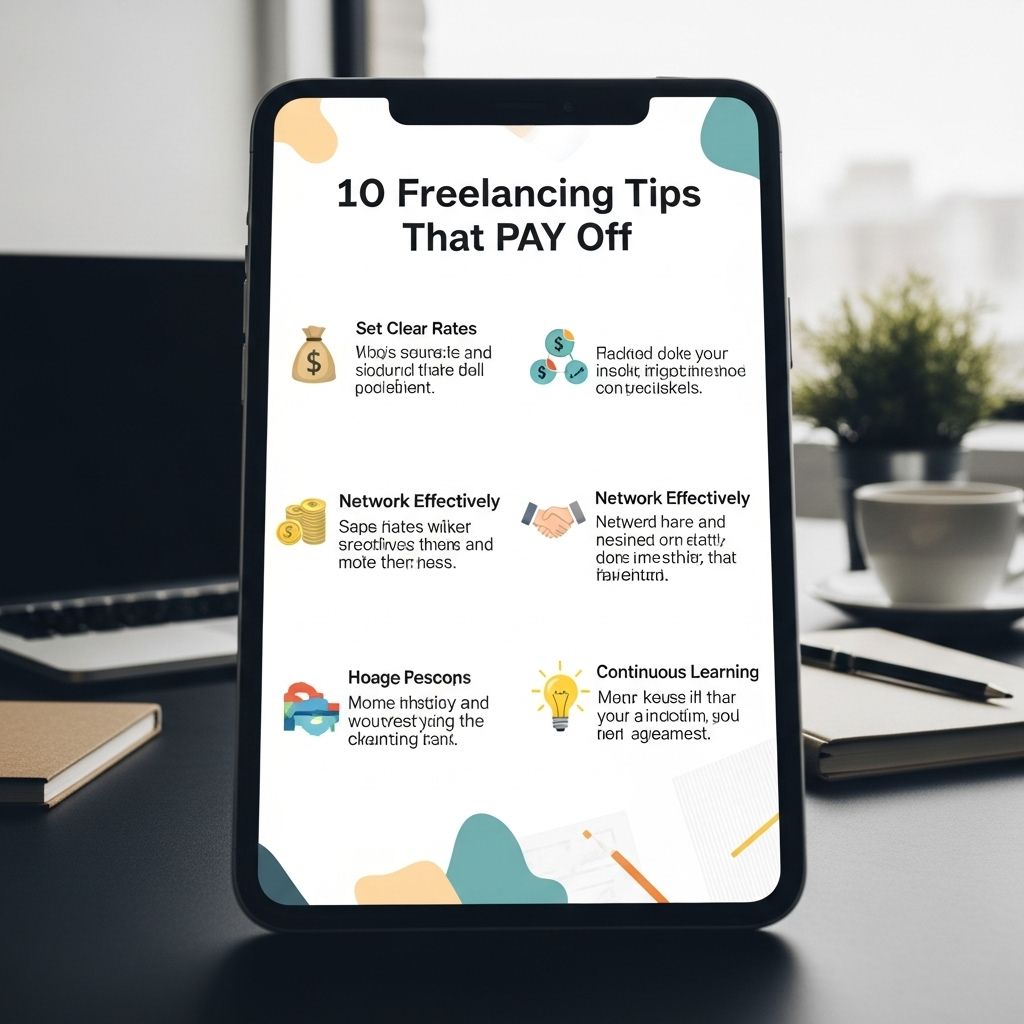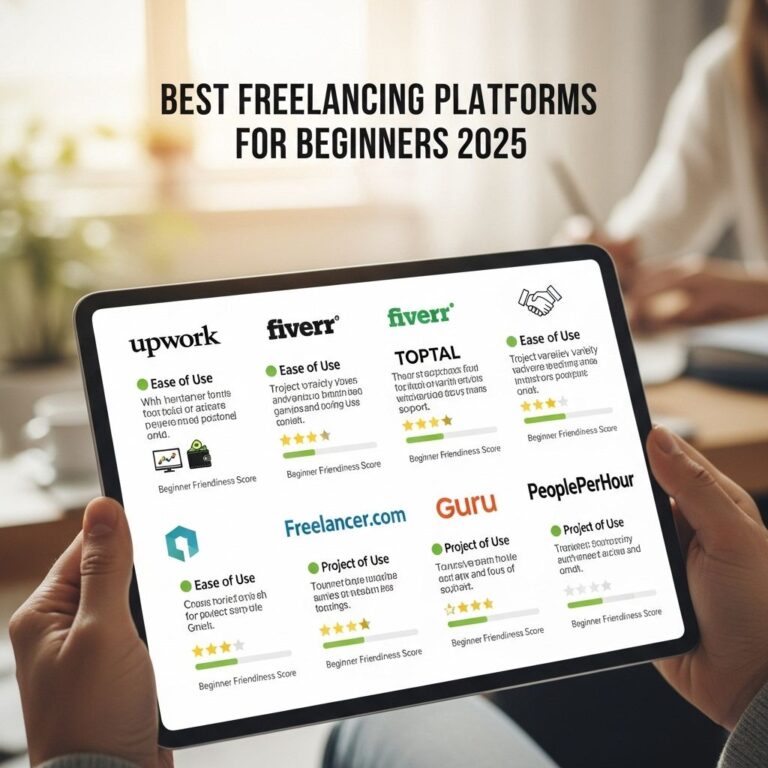In the dynamic landscape of the gig economy, freelancing offers immense opportunities for professionals across various domains. With the right strategies, you can enhance your productivity, attract high-paying clients, and secure your place in a competitive market. Whether you are a budding freelancer or an established one looking to refine your approach, understanding the nuances of this work style can significantly impact your success. Here are ten essential freelancing tips that can pay off in the long run.
Table of Contents
1. Define Your Niche
To stand out in the crowded freelancing space, it’s crucial to define your niche. Specialization allows you to become an expert in a specific area, making it easier to attract clients looking for those particular skills. Consider the following when choosing your niche:
- Experience: What are you good at?
- Passion: What do you love doing?
- Market Demand: Is there a need for your services?
By focusing on a niche, you can tailor your marketing efforts and potentially charge higher rates due to your specialized expertise.
2. Create a Professional Portfolio
Your portfolio is often the first impression potential clients have of your work. It must effectively showcase your skills and past projects. Here are elements to include:
- High-Quality Work Samples: Include your best work that aligns with the services you offer.
- Case Studies: Highlight how your work helped solve a client’s problem.
- Testimonials: Opinions from satisfied clients can build trust.
Remember to keep your portfolio up-to-date and make it visually appealing to engage visitors.
3. Establish Your Rates
Determining how much to charge can be challenging, but setting your rates appropriately is key. Here’s a simple framework to guide you:
| Rate Type | Description |
|---|---|
| Hourly Rate | Charge clients based on the hours worked. |
| Project-Based Rate | Set a fixed price per project, based on complexity. |
| Retainer Fee | Clients pay a regular fee for ongoing services. |
Research industry standards and consider your experience level when setting your rates. Don’t undersell yourself!
4. Use Freelance Platforms Wisely
Freelancing platforms like Upwork, Fiverr, and Freelancer can be great for finding clients. However, standing out on these platforms is essential:
- Complete Your Profile: Fill out all sections to make your profile appealing.
- Showcase Your Work: Include a portfolio link and previous work samples.
- Build Your Reputation: Start with lower rates and gradually increase as you gather positive reviews.
5. Network and Build Relationships
Networking is a vital part of freelancing. Building relationships with other freelancers and potential clients can lead to referrals and collaborations. Strategies include:
- Join Online Communities: Participate in forums and social media groups related to your niche.
- Attend Industry Events: Conferences and meetups are excellent for networking.
- Engage with Clients: Regular check-ins can foster long-term relationships.
6. Manage Your Time Effectively
Time management is critical for freelancers juggling multiple projects and deadlines. Here are some proven strategies:
- Set Clear Goals: Define daily, weekly, and monthly objectives.
- Use Time Tracking Tools: Apps like Toggl or Clockify can help monitor your hours.
- Prioritize Tasks: Identify high-priority tasks and focus on them first.
7. Optimize Your Work Environment
Your environment can greatly influence your productivity. Create a workspace that fosters focus and creativity:
- Declutter Your Space: A tidy environment can reduce distractions.
- Ergonomic Setup: Invest in comfortable furniture to prevent strain.
- Minimize Interruptions: Use apps to block distracting websites during work hours.
8. Diversify Your Income Streams
Relying on a single client can be risky. Diversifying your income streams can provide financial stability. Consider:
- Offering Multiple Services: Expand your skills and offer complementary services.
- Creating Passive Income: Develop online courses or write ebooks in your area of expertise.
- Consulting and Workshops: Share your knowledge through coaching and training sessions.
9. Continually Learn and Adapt
The tech landscape is always changing. Staying updated on industry trends and continuously learning is vital for success:
- Take Online Courses: Platforms like Coursera and Udemy offer courses specific to your field.
- Follow Industry Leaders: Subscribe to newsletters and follow thought leaders on social media.
- Participate in Webinars: Engage in discussions and learn from experts.
10. Maintain Work-Life Balance
Finally, don’t forget to prioritize your well-being. Maintaining a work-life balance is essential for long-term productivity:
- Set Boundaries: Establish clear working hours.
- Take Breaks: Regular breaks can boost focus and creativity.
- Pursue Hobbies: Engage in activities outside of work to recharge.
By implementing these strategies, you can build a successful freelancing career that not only pays well but also aligns with your personal values and lifestyle. Remember that consistency and dedication are the keys to thriving in the freelancing world.
FAQ
What are the top freelancing tips for beginners?
Start by defining your niche, building a strong portfolio, and networking within your industry to find clients.
How can I effectively market my freelancing services?
Utilize social media, create a professional website, and leverage online freelancing platforms to showcase your skills and attract clients.
What should I include in my freelance contract?
Include details such as project scope, payment terms, deadlines, and confidentiality agreements to protect both you and your client.
How do I set my freelance rates?
Research industry standards, consider your experience level, and factor in your skills to determine competitive yet fair pricing for your services.
What are the best practices for managing freelance projects?
Use project management tools, maintain clear communication with clients, and set realistic deadlines to ensure successful project delivery.
How can I ensure timely payments as a freelancer?
Establish clear payment terms upfront, send invoices promptly, and consider using milestone payments for larger projects to minimize delays.









